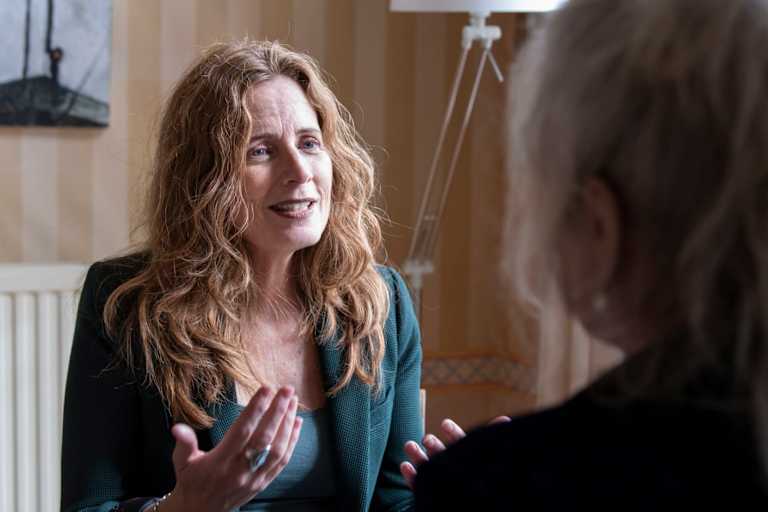Types of Counseling Degrees: How to Find Your Specialization
When you stub your toe, and it turns black and blue, there’s a reason why you might call an orthopedic doctor instead of a physician. You want someone whose expertise revolves around bones rather than general care.
The same goes for the field of counseling. Counselors can specialize in a particular area and help people with specific needs.
The five main types of counseling are:
- Marriage and Family Counseling
- School Counseling
- Substance Misuse Counseling
- Rehabilitation Counseling
- Clinical Mental Health Counseling
If you’re thinking about getting a master’s in counseling, choosing whether to be a generalized or specialized counselor is going to be a key question for you. Often, counselors choose based on whether their interests, strengths, and goals align with the specialty.
Let’s go over a few big reasons why one counseling specialization might be better for you than the others.
1. Marriage and Family Counselor
- Median Annual Salary (May 2023): $58,510
- Job Outlook (2022-2032): 15%
A marriage and family counselor helps couples and family members deal with complex and varied issues. They diagnose and treat emotional or mental disorders, mediate disputes, and offer conflict-resolution skills.
It’s right for you if:
You want to be a relationship expert with the grit and desire to help strengthen and maintain bonds between loved ones.
You’re passionate about helping people cope with marital distress, parenting problems, and financial stress.
You prefer solutions-oriented counseling to encourage self-development and growth.
2. School Counselor
- Median Annual Salary (May 2023): $61,710
- Job Outlook (2022-2032): 5%
A school counselor provides support and guidance for students and teachers. They address social or behavioral problems, help students develop tools for academic success, and collaborate with teachers and families to overcome challenges.
It’s right for you if:
You enjoy providing support and guidance for kids, encouraging their success both academically and socially.
You’re comfortable working with teachers, administrators, and parents to make sure students’ needs are met.
You’re passionate about giving students the tools to prepare for life beyond school.
3. Substance Misuse Counselor
- Median Annual Salary (May 2023): $53,710
- Job Outlook (2022-2032): 18%
A substance misuse counselor works with people managing addiction or behavioral disorders. They evaluate patients’ mental and physical health, identify triggers, and create treatment plans.
It’s right for you if:
You want to play a pivotal role in someone’s path to recovery or stability.
You’re a compassionate person who can understand and empathize with addiction — perhaps with first-hand experience — and can withhold judgment.
You’re willing to help patients dealing with personal distress or anger at their current situation.
4. Rehabilitation Counselor
- Median Annual Salary (May 2023): $44,040
- Job Outlook (2022-2032): 2%
A rehabilitation counselor helps people adapt to physical, mental, developmental, or emotional disabilities that keep them from living independently. They help patients set and achieve daily living goals, provide access to services that empower them, and remove barriers so they can live more freely.
It’s right for you if:
You’re passionate about supporting and advocating for people with disabilities.
You feel confident communicating verbally and nonverbally with people who might have cognitive or social disabilities.
You can find creative solutions to problems on the go and adapt to patients’ specific concerns.
5. Clinical Mental Health Counselor
- Median Annual Salary (May 2023): $53,710
- Job Outlook (2022-2032): 18%
A clinical mental health counselor treats individuals struggling with mental, emotional, or behavioral issues. They help patients understand their struggles, cope with them, and encourage changes to their behavior to improve their general well-being.
It’s right for you if:
You want to help people struggling with various challenges, from personal problems and career stress to depression and anxiety.
You can adapt and empathize with all kinds of people’s experiences and cultural backgrounds.
You prefer new challenges daily and are comfortable with unfamiliar situations.
Frequently Asked Questions Choosing a Counseling Specialization
Becoming a specialized counselor can be a good career choice depending on what you want to do. One reason for specialization is getting to follow whatever your passion may be. You can also become intimately familiar with your specialization and provide better care to your clients.
But specialization can have its drawbacks. For example, you may be less marketable if you can’t find a job in your specialization. There’s also some risk of becoming burned out if your career focuses heavily on one particular area rather than a variety of them.
If you’re an aspiring counselor and don’t know what type of counseling you’d like to specialize in yet, don’t worry — you can choose a specialization during your graduate program or even after.
Explore More College Resources

Master’s in Counseling Degree Guide
Considering a master’s in counseling? Discover the pros and cons, concentration options, courses, and more in this comprehensive program guide.

by James Mielke
Updated May 16, 2025

